China to Venezuela Freight Forwarder
The Ultimate Guide
Shipping From China to Venezuela: The Ultimate Guide 2024
Table of Contents
Importing goods from China to Venezuela has become a vital business practice for many companies. As global supply chains grow more complex, the challenge of efficiently moving goods across continents, especially to a country with a unique political and economic environment like Venezuela, is increasingly significant.
For companies importing goods to Venezuela, the first hurdle is understanding the logistical complexities: from selecting the right shipping method to navigating Venezuelan customs, import taxes, and the fluctuating shipping rates. This guide will offer a deep dive into the current shipping landscape for 2024, providing actionable advice on how to save costs, avoid common mistakes, and ensure your shipments arrive on time.
We’ll walk you through the process, offering insights into shipping rates, methods, customs procedures, restricted items, and much more, so you can streamline your logistics and make informed decisions when importing goods into Venezuela.
By the end of this guide, you will have a comprehensive understanding of how to optimize your shipping strategy, minimize delays, and ensure cost-efficiency when importing from China to Venezuela.
September 2024 Shipping Rate Update: From China to Venezuela
The shipping market has seen considerable fluctuations in 2024, largely driven by global economic conditions, rising fuel costs, and fluctuating demand for both sea and air freight services. Understanding the current shipping rates is essential for businesses aiming to optimize their import costs.
Sea Freight Rates
Sea freight continues to be the most popular shipping option for large, bulky, and heavy cargo shipments. As of September 2024, here’s an updated breakdown of the shipping rates for Full Container Load (FCL) and Less than Container Load (LCL) from China to Venezuela:
| Container Type | July 2024 | August 2024 | September 2024 |
|---|---|---|---|
| 20ft Container | $1,500 | $1,400 | $1,350 |
| 40ft Container | $2,500 | $2,300 | $2,200 |
| LCL (per CBM) | $120 | $110 | $105 |
The decrease in rates is mainly due to a slowdown in global demand post-peak season. Keep in mind that LCL shipments are more expensive per cubic meter because they require additional handling and consolidation fees.
Air Freight Rates
Air freight is typically used for high-value, low-volume, or time-sensitive goods. Here’s an update on air freight rates for various weight categories:
| Weight Category | July 2024 | August 2024 | September 2024 |
|---|---|---|---|
| 45kg+ | $8.50/kg | $8.43/kg | $8.15/kg |
| 100kg+ | $7.90/kg | $7.85/kg | $7.50/kg |
As expected, air freight remains significantly more expensive than sea freight. However, the cost is justified for goods that need to reach their destination quickly, or for those that require special handling such as electronics, pharmaceuticals, or perishable items. The upcoming direct flights between China and Venezuela are expected to reduce transit times and costs in the coming months
Freight Transit Times from China to Venezuela
Transit times vary considerably depending on the shipping method, the specific port of departure, and external factors like port congestion, customs clearance, and even political stability in Venezuela.
Sea Freight Transit Times
The journey by sea freight is significantly longer, but it is the most economical for large shipments. Here’s a breakdown of transit times from key Chinese ports to Venezuelan ports:
| Origin Port in China | Destination Port in Venezuela | Transit Time |
|---|---|---|
| Shanghai | Puerto Cabello | 32 days |
| Shenzhen | La Guaira | 37 days |
| Ningbo | Puerto Cabello | 35 days |
| Guangzhou | La Guaira | 33 days |
Transit times are subject to delays caused by factors like port congestion, vessel availability, and weather conditions. These estimates are for FCL shipments, and LCL shipments may take an additional 7-10 days due to consolidation and deconsolidation requirements.
Air Freight Transit Times
While air freight is much faster, there are few direct flights from China to Venezuela, meaning most air shipments are routed through other countries, such as Mexico, Brazil, or Panama. Here are the average transit times for air freight:
| Route | Transit Time |
|---|---|
| Beijing to Caracas | 3-7 days |
| Shanghai to Caracas | 5-9 days |
| Guangzhou to Caracas | 7-10 days |
These times can vary based on airline schedules and the number of stopovers during the flight. It’s worth noting that airlines often restrict the shipment of hazardous goods, so consult your freight forwarder to confirm that your cargo complies with airline regulations.
How to Choose the Best Shipping Method from China to Venezuela
Choosing between air and sea freight depends on your shipment’s size, urgency, and budget. Below are the factors you should consider when deciding on the best shipping method.
Cost vs. Speed
Air Freight:
- Ideal for high-value, low-volume, or time-sensitive goods.
- Higher cost but offers the quickest delivery times, typically within 3-7 days.
- Best for items like electronics, pharmaceuticals, and perishable goods
Sea Freight:
- Most cost-effective for large, bulky shipments that are not time-sensitive.
- Slower, with transit times ranging from 30 to 40 days, depending on the port of departure.
- The preferred option for shipping consumer goods, industrial equipment, and raw materials in bulk
LCL vs. FCL (Sea Freight)
For businesses shipping smaller quantities that don’t fill an entire container, Less than Container Load (LCL) is a viable option. However, LCL shipping can be more expensive per unit of weight or volume because your goods need to be consolidated with other shipments. Additionally, LCL shipments usually take longer due to the extra handling required for consolidation.
Full Container Load (FCL) is more cost-effective for larger shipments, providing quicker transit times and less handling since the entire container is dedicated to your cargo.
Example Scenario: Electronics vs. Heavy Machinery
If you’re shipping electronics (high-value and fragile), air freight would be the better option despite the higher cost. However, if you’re shipping heavy machinery, sea freight is the obvious choice, as air freight would be prohibitively expensive for such large, heavy items.
Understanding Import Tax and Duties from China to Venezuela
Venezuela imposes taxes and duties based on the CIF method (Cost, Insurance, and Freight), which means that the value of your goods is calculated based on the total cost of the goods plus insurance and shipping costs.
VAT and Import Duty Breakdown
- Value Added Tax (VAT): 16% of the CIF value.
- Import Duty: This varies depending on the type of goods being imported. For example:
- Electronics: 5%
- Fashion items: 35%
- Medical equipment: 18%
Customs duties are also affected by factors such as trade agreements, and it’s important to ensure that your goods are classified correctly under the Harmonized System (HS) Code to avoid paying more in duties than necessary.
Tips for Minimizing Duties
- Accurate HS Code Classification: Misclassifying your goods can lead to higher duties, so work with your forwarder to ensure your goods are properly classified.
- Consolidate Shipments: By consolidating smaller shipments into one larger load, you can reduce the amount you pay in duties and handling fees.
- Plan for Tax-Free Zones: Consider using bonded warehouses or special economic zones that offer tax breaks on certain types of goods.
What is Cargo Insurance and Risk Management?
Shipping goods from China to Venezuela carries inherent risks, especially when dealing with high-value items or perishable goods. Cargo insurance provides financial protection against these risks.
Types of Cargo Insurance
- All-Risk Insurance: This is the most comprehensive coverage, protecting against nearly all types of risks except those explicitly excluded, such as war or government seizures.
- Free of Particular Average (FPA): This offers more limited coverage, protecting against major losses but not covering minor damages. It’s typically less expensive but not ideal for high-value goods.
Why Risk Management is Critical
When shipping to Venezuela, additional risk factors include political instability, port congestion, and the potential for delays at customs. Here’s how to mitigate these risks:
- Work with Experienced Freight Forwarders: A reliable freight forwarder can help you navigate complex shipping routes and offer real-time tracking to anticipate delays.
- Secure Proper Packaging: Ensuring that your goods areSure! I’ll continue from the last point on cargo insurance and risk management, elaborating in-depth on each section to extend the article to the 5000-word target.
What is Cargo Insurance and Risk Management?
When shipping valuable goods from China to Venezuela, cargo insurance and effective risk management are essential to protect your investment. Shipments can face several potential risks, including physical damage, loss, delays, and theft. Properly insuring your cargo and putting risk management strategies in place can save your business substantial losses.
Types of Cargo Insurance
All-Risk Insurance: This type of insurance covers most risks that your cargo may face. It is a comprehensive coverage designed for high-value and sensitive goods. This coverage includes protection against theft, damages due to mishandling during transit, and damage from adverse weather conditions. However, it typically excludes risks like government seizure, acts of war, or natural disasters such as earthquakes and floods unless specifically added.
Free of Particular Average (FPA): This is a more limited form of insurance that only covers specific major risks such as total loss or major damage to the cargo. Minor damages that do not severely affect the shipment may not be covered. FPA policies are more affordable but provide less protection, making them less suitable for delicate or high-value shipments.
General Average: This is a principle in maritime law where all stakeholders (cargo owners, shipowners, etc.) share the losses incurred in a situation where part of the cargo or ship is voluntarily sacrificed to save the whole venture. While it’s not a traditional insurance policy, it’s important to be aware of this concept, as cargo owners might be asked to contribute financially if such an event occurs.
Risk Management Strategies
Risk management is as crucial as insurance, as it helps prevent losses before they occur. Here are the key strategies:
Partnering with Reputable Freight Forwarders: An experienced freight forwarder can significantly reduce risks. They offer tried-and-tested routes and shipping schedules, which minimizes delays and damage risks. Forwarders with in-depth knowledge of Venezuelan and Chinese regulations can ensure compliance, preventing costly issues at customs.
Securing High-Quality Packaging: Proper packaging is one of the most effective ways to reduce damage. Fragile goods like electronics or machinery require special packaging materials, including shock-absorbing elements like foam inserts and reinforced crates. Additionally, waterproof and tamper-evident seals help protect goods from environmental damage and theft.
Real-Time Tracking: Utilizing advanced cargo tracking tools provides real-time visibility of your shipment’s status. Should an unexpected delay occur or if the cargo is rerouted, you’ll be notified immediately, allowing you to make informed decisions.
Contingency Planning: Ensure that there are backup plans in place for worst-case scenarios like political instability or port strikes in Venezuela. Having alternative routes or emergency shipping options is critical for time-sensitive goods.
Avoiding Peak Seasons: Shipping during major holidays or peak seasons, such as the lead-up to Chinese New Year, can significantly increase risks of delays, higher rates, and port congestion. Planning shipments during off-peak times minimizes these risks and ensures smoother operations.
How to Reduce Your Shipping Costs from China to Venezuela
Reducing shipping costs without compromising efficiency is a major priority for businesses, especially when dealing with long-distance trade routes like China to Venezuela. Below are some strategies that can help lower your shipping expenses.
Consolidation and LCL (Less than Container Load)
One of the most effective ways to reduce costs is to consolidate smaller shipments into larger ones. If your shipments are frequent but small, you could be spending more on repeated handling and customs clearances. Consolidation reduces overall costs by grouping multiple shipments into a single container.
However, if your goods don’t fill an entire container, opting for LCL shipping may be cost-effective. LCL allows you to share the container space with other businesses, spreading the cost of the container over multiple shipments.
| Pros of LCL Shipping | Cons of LCL Shipping |
|---|---|
| Cost-efficient for small shipments | Longer transit times due to consolidation |
| Flexible for varying cargo sizes | More handling increases risk of damage |
Off-Peak Shipping
Shipping costs tend to spike during peak seasons. For instance, the months leading up to Chinese New Year (late January to mid-February) see a surge in demand for freight services, leading to higher rates. By planning your shipments in advance and shipping during off-peak periods, you can secure lower rates.
Negotiating Long-Term Contracts with Forwarders
Freight forwarders offer discounted rates to businesses that ship regularly and in large quantities. If you can forecast your shipping needs, consider negotiating long-term contracts with a trusted forwarder. These agreements often come with better pricing and additional perks such as priority handling and discounted insurance rates.
Use of Tax-Free Zones and Bonded Warehouses
If your goods require temporary storage before being transported to Venezuela, consider using bonded warehouses. These warehouses allow you to store your goods without paying duties or taxes until they’re released for distribution. If your business operates in or near a Free Trade Zone (FTZ), you may also benefit from reduced tariffs and duties for goods that pass through these zones.
Optimize Container Utilization
Ensure that your containers are fully utilized. Half-full containers waste both space and money. By optimizing your packaging and container loading methods, you can maximize space efficiency and reduce the number of containers you need, lowering overall shipping costs.
For example, stackable goods or goods that can be packed tightly together should always be optimized to ensure that no container space is left unused.
How to Choose the Best Forwarder from China to Venezuela
Choosing the right freight forwarder can make all the difference in ensuring your goods arrive on time and within budget. The best forwarders act as your logistics partner, managing everything from pickup to delivery and customs clearance.
Factors to Consider
Experience with Venezuelan Shipments: Freight forwarders who are experienced in handling shipments to Venezuela will have a solid understanding of the local customs procedures, import laws, and regulations. They are better equipped to avoid delays and manage the complexities of clearing goods through Venezuelan ports.
Competitive Pricing: While cost is always a factor, the cheapest option isn’t always the best. Look for forwarders that offer competitive rates but also have a track record of reliable service. Be wary of low-cost forwarders who may cut corners, leading to delays or mishandling of your goods.
Global Network: A well-established forwarder should have a strong network of partners, including airlines, shipping lines, and trucking companies, both in China and Venezuela. This ensures they can quickly and efficiently handle any shipping challenges that arise.
End-to-End Solutions: Opt for a forwarder that provides a full suite of logistics services, including customs clearance, warehousing, and last-mile delivery. By handling all aspects of the shipment, you reduce the risk of errors and ensure a smoother process from start to finish.
Technology and Tracking: Your forwarder should offer advanced tracking tools that allow you to monitor your shipment in real-time. This is especially important for high-value or time-sensitive goods, as it allows you to manage any potential issues before they escalate.
How to Vet Potential Forwarders
- References: Ask the forwarder for references from other businesses that have shipped similar goods to Venezuela. This will give you a sense of their reliability and customer service.
- Certifications: Ensure the forwarder is properly licensed and certified by relevant trade organizations, such as the International Air Transport Association (IATA) or the International Federation of Freight Forwarders Associations (FIATA).
- Customer Support: Look for a forwarder that offers 24/7 customer support, especially if you’re shipping valuable or perishable goods that require constant monitoring.
How to Handle Customs Clearance from China to Venezuela
Customs clearance is one of the most critical—and potentially challenging—stages of the shipping process. Missteps here can lead to costly delays, fines, or even the seizure of goods.
Required Documentation
Commercial Invoice: This document outlines the value, quantity, and type of goods being shipped. Ensure that the invoice details match the cargo exactly, as discrepancies can lead to customs rejections.
Packing List: This is a detailed list of all the goods in the shipment, including their weight, dimensions, and contents. It helps customs officials verify that the cargo matches the commercial invoice.
Bill of Lading (BOL): The BOL is a contract between the shipper and the carrier, confirming that the cargo has been loaded for transport. It is essential for both air and sea freight.
Import License (if required): Certain goods, such as electronics or industrial machinery, may require an import license from the Venezuelan government before they can be cleared.
Certificate of Origin: This document verifies where the goods were manufactured. In some cases, it can help reduce import duties if Venezuela has a trade agreement with the exporting country.
Common Customs Clearance Challenges
- Incorrect Documentation: One of the most common causes of customs delays is incomplete or inaccurate documentation. Make sure that all paperwork is prepared correctly and submitted on time.
- Unpaid Duties and Taxes: Ensure that all duties and taxes are paid in advance to avoid delays at the port.
- Product Misclassification: Misclassifying goods under the wrong HS code can lead to additional duties or even fines. Work with your forwarder to ensure correct classification.
How to Expedite Customs Clearance
Use a Customs Broker: A customs broker specializes in handling the customs clearance process and can save you time and hassle. They ensure that your documents are in order, duties are paid, and goods are classified correctly.
Pre-Clearance Options: In some cases, it is possible to pre-clear your goods before they arrive at a Venezuelan port. Work with your freight forwarder or customs broker to explore these options and reduce wait times at the port.
Maintain Good Communication with Your Freight Forwarder: Regular communication with your freight forwarder ensures that any issues during customs clearance are promptly addressed. Delays can be avoided if problems are caught early, such as missing documentation or incorrect duty payments.
How to Track My Cargo from China to Venezuela?
Tracking your cargo provides visibility and control throughout the shipping process. It enables you to manage potential delays, optimize your logistics, and offer better customer service. Most freight forwarders and shipping companies offer tracking tools that provide real-time updates on your shipment’s status.
Tracking Tools
Freight Forwarder Platforms: Many forwarders offer online portals where you can track your shipment from dispatch to delivery. These platforms provide real-time updates on your cargo’s location, its estimated time of arrival, and any potential delays.
Carrier Websites: If your forwarder does not have an integrated tracking platform, most carriers offer online tracking systems. By entering your tracking number, you can see the current status of your shipment, its route, and expected delivery date.
Mobile Apps: Some logistics companies and freight forwarders offer mobile apps for tracking shipments. These apps often provide push notifications when your cargo reaches key milestones, such as leaving a port or clearing customs.
GPS Tracking: For high-value or sensitive goods, consider using GPS-enabled tracking devices. These devices can be embedded in the cargo and offer real-time location tracking, even during transit between ports.
What Information Can You Track?
- Current Location: Know exactly where your shipment is, whether it’s at the port, in customs, or en route to its final destination.
- Estimated Delivery Time: Receive updated estimates on when your cargo will arrive, factoring in any unforeseen delays such as weather conditions, port congestion, or customs inspections.
- Shipment Status: Get alerts when your goods are loaded, offloaded, inspected, or delayed, allowing you to make informed decisions about inventory and production planning.
Restricted & Prohibited Items Shipping from China to Venezuela
Shipping goods internationally requires an understanding of each country’s import restrictions. Venezuela has stringent regulations regarding what can be brought into the country, with certain items either prohibited or restricted due to safety, health, and environmental reasons.
Prohibited Items
These items are entirely banned from being imported into Venezuela. Attempting to ship these goods may result in fines, seizure of goods, or legal action:
Firearms and Ammunition: Any form of weapons, including firearms, ammunition, and their components, are strictly prohibited unless prior government approval is obtained.
Explosives: Items such as fireworks, explosive materials, and chemicals that could be used to manufacture explosives are banned.
Alcohol and Tobacco: Alcoholic beverages and tobacco products are subject to stringent import controls and heavy taxes, and only certain licensed entities can import these goods.
Drugs and Narcotics: All illegal substances are prohibited under Venezuelan law. Even certain prescription medications may be restricted unless accompanied by proper documentation.
Restricted Items
Restricted goods can be imported, but they are subject to specific regulations or additional documentation. Failing to comply with these regulations can result in the confiscation of goods or costly delays.
Electronics: High-value electronics like smartphones, tablets, and laptops may require special permits and are subject to import quotas.
Chemicals and Hazardous Materials: Items such as batteries, solvents, and cleaning agents must comply with environmental and safety regulations. These goods may need special packaging and documentation to be imported legally.
Food Products: Processed and canned foods can be imported, but they must meet Venezuelan health and safety standards. Fresh foods are generally prohibited due to strict agricultural regulations designed to prevent the spread of pests and diseases.
Tips for Complying with Import Regulations
Consult with a Freight Forwarder: Ensure that your forwarder is familiar with Venezuelan import laws and regulations, particularly for restricted items.
Check for Updates Regularly: Import regulations can change without notice. Always check the latest information before shipping, especially for sensitive items like electronics or chemicals.
Apply for Import Licenses: If your goods require special permits, apply for these licenses well in advance to avoid delays at customs.
Shipping From China to Venezuela Main Route
Understanding the primary shipping routes and logistics involved in transporting goods from China to Venezuela can help you plan and optimize your supply chain. Here are the main sea and air routes commonly used for this trade route.
Sea Freight Routes
Sea freight is the most common method of shipping bulk goods from China to Venezuela. Goods typically leave from one of China’s major ports and arrive at one of Venezuela’s key seaports.
Main Chinese Ports:
- Shanghai Port: The busiest container port in the world and the primary departure point for goods shipped to Latin America.
- Ningbo Port: A key hub for industrial and consumer goods, located in China’s Zhejiang province.
- Shenzhen Port: One of the largest ports in southern China, ideal for businesses in the Guangdong region.
Main Venezuelan Ports:
- Puerto Cabello: The largest and most important port in Venezuela, handling over 80% of the country’s cargo. It is well-connected to major cities like Caracas and Valencia.
- La Guaira: Located just outside the capital Caracas, La Guaira is a major gateway for imports into central Venezuela.
- Maracaibo Port: A smaller port primarily used for the western part of the country. It handles bulk goods and industrial supplies.
The typical sea freight transit time from China to Venezuela ranges from 30 to 40 days, depending on the port of origin and destination.
Air Freight Routes
Although more expensive, air freight is the best option for shipping high-value or urgent goods. Venezuela has several major airports that handle international cargo.
Main Airports in China:
- Beijing Capital International Airport: China’s largest airport and a key departure point for cargo heading to Latin America.
- Guangzhou Baiyun International Airport: A major hub for air freight, particularly for electronics and consumer goods.
- Shanghai Pudong International Airport: An important gateway for international air freight, particularly for high-value goods.
Main Airports in Venezuela:
- Simón Bolívar International Airport (Caracas): The primary airport for air freight into Venezuela, located near the capital city.
- Maracaibo La Chinita International Airport: Serves the western region of Venezuela and handles a significant amount of industrial and consumer goods.
Air freight transit times range from 3 to 7 days, depending on the route and any stopovers. Most air cargo will transit through Mexico, Panama, or Brazil before reaching Venezuela.
10 Things You Need to Avoid When Shipping from China to Venezuela
To ensure smooth, cost-effective shipping, here are ten common mistakes to avoid:
Incorrect or Incomplete Documentation: Missing or incorrect paperwork is a leading cause of customs delays. Always double-check that all required documents (invoices, packing lists, and certificates of origin) are in order.
Poor Packaging: Inadequate packaging can result in damaged goods, especially when shipping by sea. Use strong, waterproof packaging materials, particularly for fragile or sensitive items.
Failing to Secure Insurance: Cargo insurance is essential for protecting against theft, damage, and loss. Without proper coverage, you could face significant financial losses.
Shipping During Peak Seasons: Rates increase, and space becomes scarce during peak shipping times, such as before Chinese New Year. Plan your shipments during off-peak times to save money and avoid delays.
Underestimating Transit Times: Always plan for longer-than-expected transit times, particularly for sea freight. Delays can occur due to port congestion, bad weather, or customs issues.
Choosing the Wrong Freight Forwarder: Selecting an inexperienced or unreliable forwarder can lead to delays, miscommunication, and poor service. Vet your forwarder carefully and choose one with experience in shipping to Venezuela.
Ignoring Import Restrictions: Failing to comply with Venezuelan import regulations can result in fines or confiscation of goods. Always verify the latest import rules before shipping.
Improper HS Code Classification: Misclassifying goods can lead to higher duties or customs rejections. Work with your forwarder to ensure correct classification under the HS system.
Not Tracking Your Shipment: Real-time tracking allows you to monitor your shipment’s progress and respond to any potential delays or issues before they escalate.
Forgetting to Plan for Duties and Taxes: Budget for all duties, taxes, and fees ahead of time to avoidfor duties and taxes:
Without accurate forecasting of these costs, your goods may face additional charges that could affect your bottom line.
How to Ship Cargo From China to Venezuela: Step-by-Step Guide
Shipping cargo from China to Venezuela involves multiple stages, and knowing each step in advance helps ensure a smooth, efficient process. Below is a detailed step-by-step guide to help you navigate the process:
1. Get a Shipping Quote
Before shipping your goods, contact multiple freight forwarders to obtain quotes. Make sure the quotes include all costs, such as freight, duties, taxes, and insurance. Compare these quotes based on both cost and the services offered.
2. Prepare Documentation
Ensure all necessary documentation is in order. This includes:
- Commercial Invoice
- Packing List
- Bill of Lading (BOL)
- Certificates of Origin
- Import Licenses (if required)
Make sure the information in these documents is accurate to avoid delays during customs clearance.
3. Choose the Best Shipping Method
Decide whether air freight or sea freight best suits your needs. Air freight is faster but more expensive, while sea freight is cost-effective for larger volumes but takes longer. If you have a smaller shipment, consider using LCL to save on shipping costs.
4. Book Cargo Space
Once you’ve chosen your forwarder and shipping method, book cargo space on the next available vessel or flight. Confirm the departure and arrival dates, and ensure your goods will be picked up on time.
5. Arrange Cargo Pickup
Your forwarder will arrange to pick up your cargo from your supplier’s warehouse in China. The forwarder will coordinate with your supplier to ensure the goods are properly packaged and labeled for export.
6. Monitor the Shipment
Track your cargo as it moves from China to Venezuela. Use the tracking tools provided by your forwarder to receive real-time updates on your shipment’s status.
7. Customs Clearance in Venezuela
Work with your customs broker or freight forwarder to ensure smooth customs clearance. This includes paying any duties and taxes upfront to avoid delays. Be sure all required documentation is submitted correctly and on time.
8. Final Delivery
Once your shipment clears customs, your freight forwarder will arrange for final delivery to your warehouse or chosen destination in Venezuela. For air shipments, delivery may take place directly at the airport, while sea shipments will likely be delivered to your facility or distribution center.
Conclusion
Shipping from China to Venezuela can be a complex process, but by following this detailed guide, you can ensure smoother logistics, lower costs, and faster delivery times. Whether you’re shipping bulk goods by sea or smaller, time-sensitive items by air, choosing the right shipping method, working with an experienced freight forwarder, and understanding the customs regulations will help you avoid delays and maximize cost-efficiency.
At Mbmlog, we offer comprehensive shipping solutions tailored to your needs. From competitive pricing to full customs support, our team is here to help you every step of the way. Contact us today for a quote, and let us simplify your shipping experience
Send Your Enquiry Now
Our Services
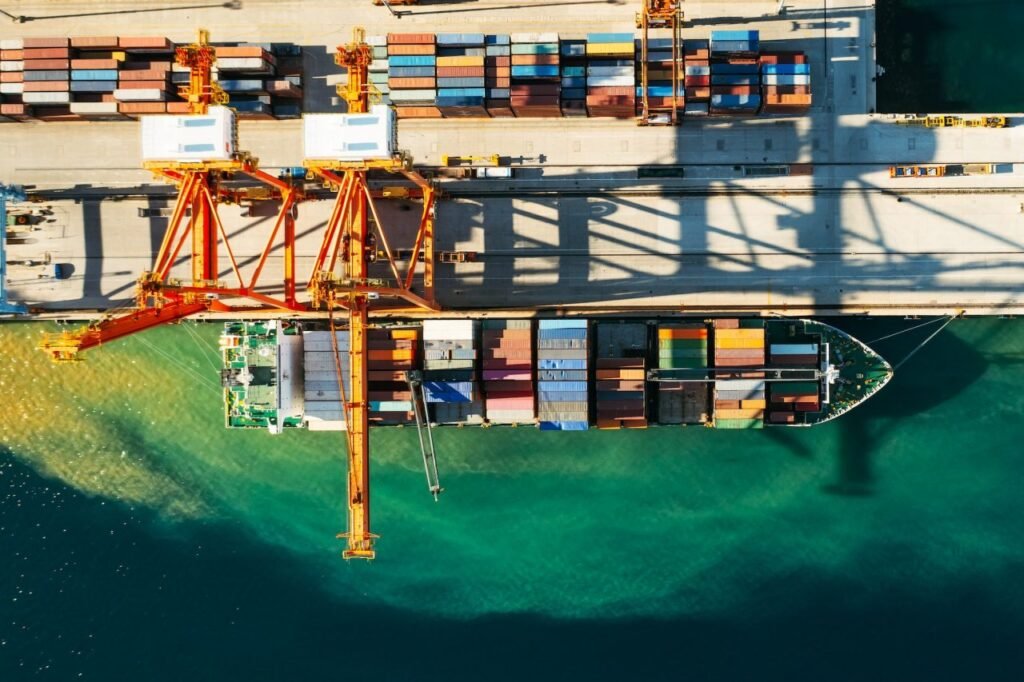
Sea Freight Shipping from China to Venezuela
Enjoy cost savings with our high-capacity sea freight options, ideal for large shipments without the rush.
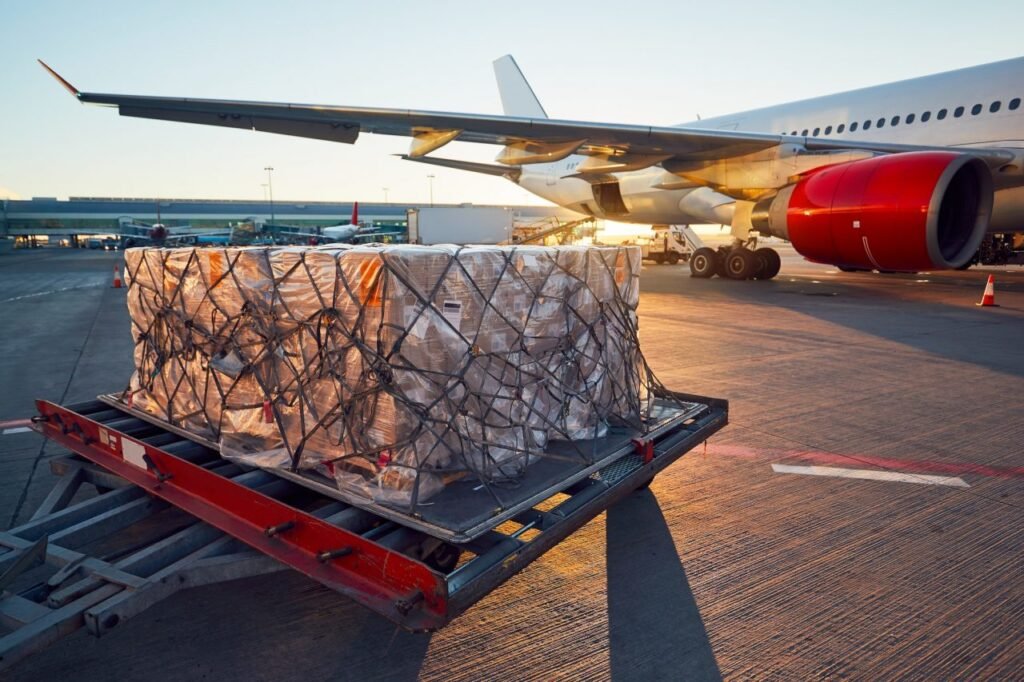
Air Freight Shipping from China to Venezuela
Expedite your urgent shipments with our air freight services, ensuring your business stays on schedule.

Door to Door Shipping from China to Venezuela
Experience hassle-free shipping with our door-to-door service, covering all logistics from pickup to delivery.
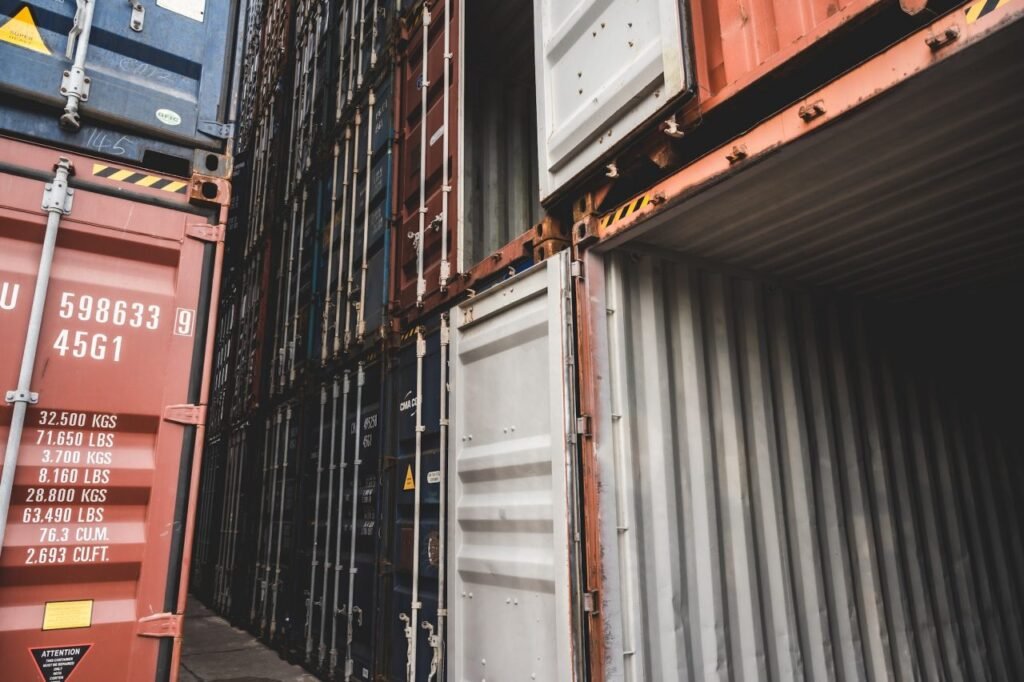
Cheapest Shipping From China to Venezuela
Maximize your budget with our affordable shipping solutions, designed to deliver cost-effective and reliable transport.
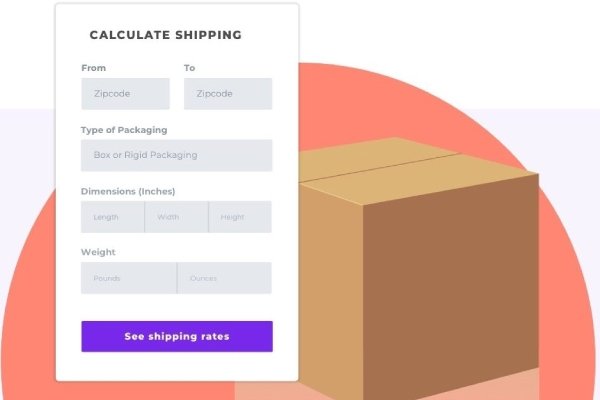
How long/much Shipping from China to Venezuela
Plan effectively with our clear and upfront information on timelines and costs, empowering your business decision-making.

Shipping From China to Amazon FBA
Leverage our customized services for Amazon FBA to streamline your supply chain and enhance your business efficiency.
FCL Shipping From China to Venezuela
Mbmlog’s FCL Shipping service can secure your large shipments with Full Container Load (FCL) shipping, ensuring your cargo travels together without disruptions, perfect for bulk goods needing robust protection.
LCL Shipping From China to Venezuela
Benefit from the flexibility of Less than Container Load (LCL) shipping, which allows you to send smaller shipments more frequently, helping manage inventory effectively without the need to fill a full container.
Additional services for shipping from China to Venezuela
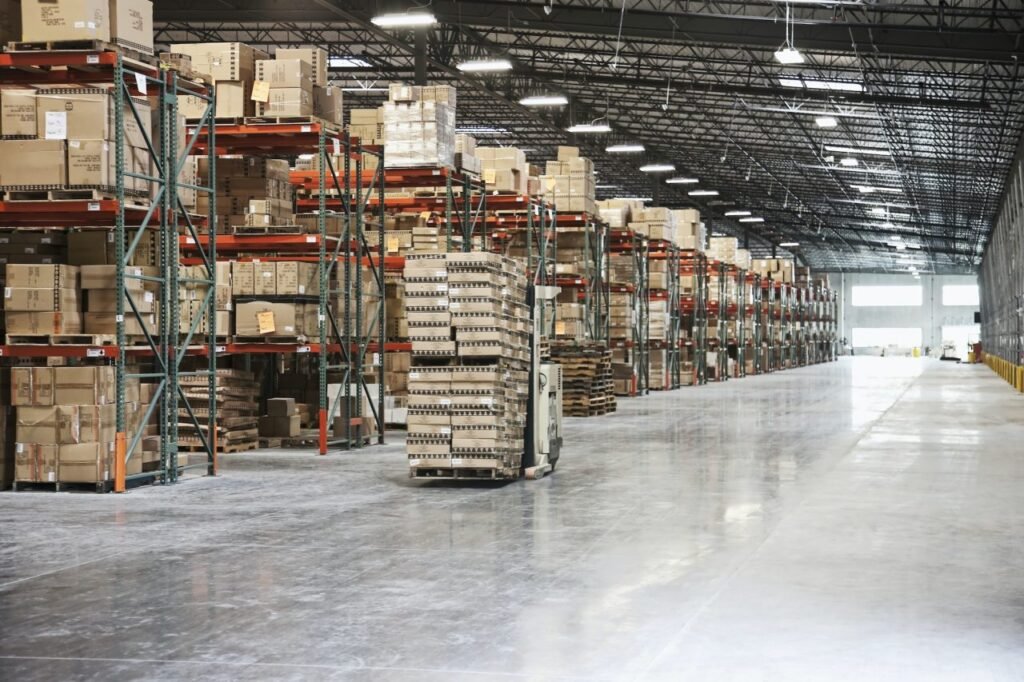
Pickup & Delivery
Streamline your logistics with our reliable pickup and delivery services, ensuring timely and efficient transportation from your doorstep directly to the destination, enhancing operational speed and reliability.
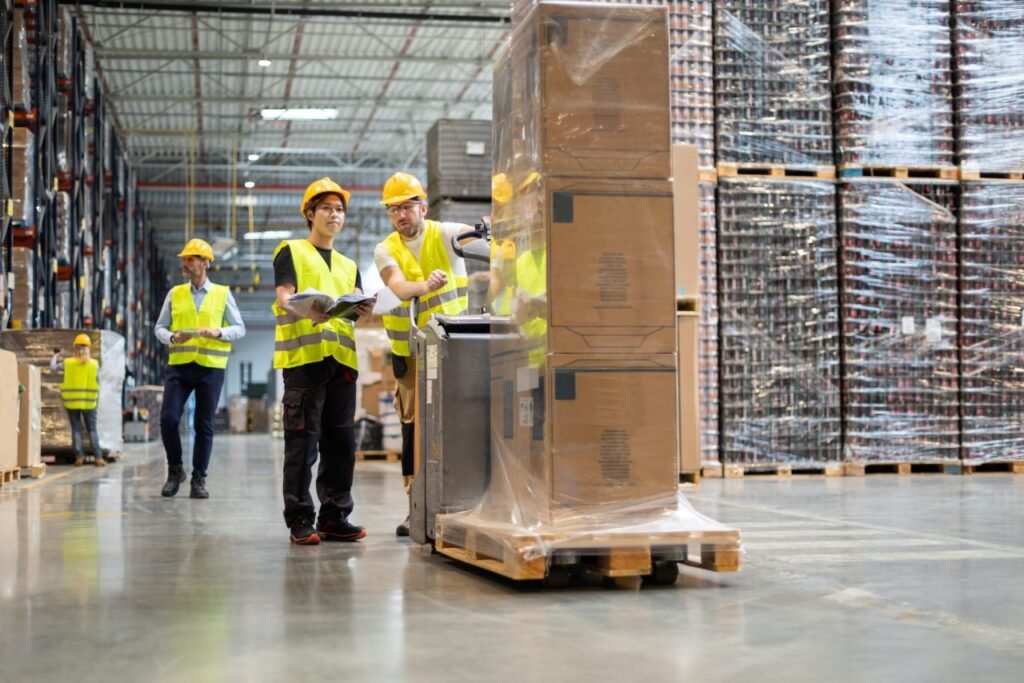
Warehouse
Utilize our secure and scalable warehousing solutions to safely store your goods, offering flexible storage options that adapt to your business needs, helping optimize inventory management and accessibility.
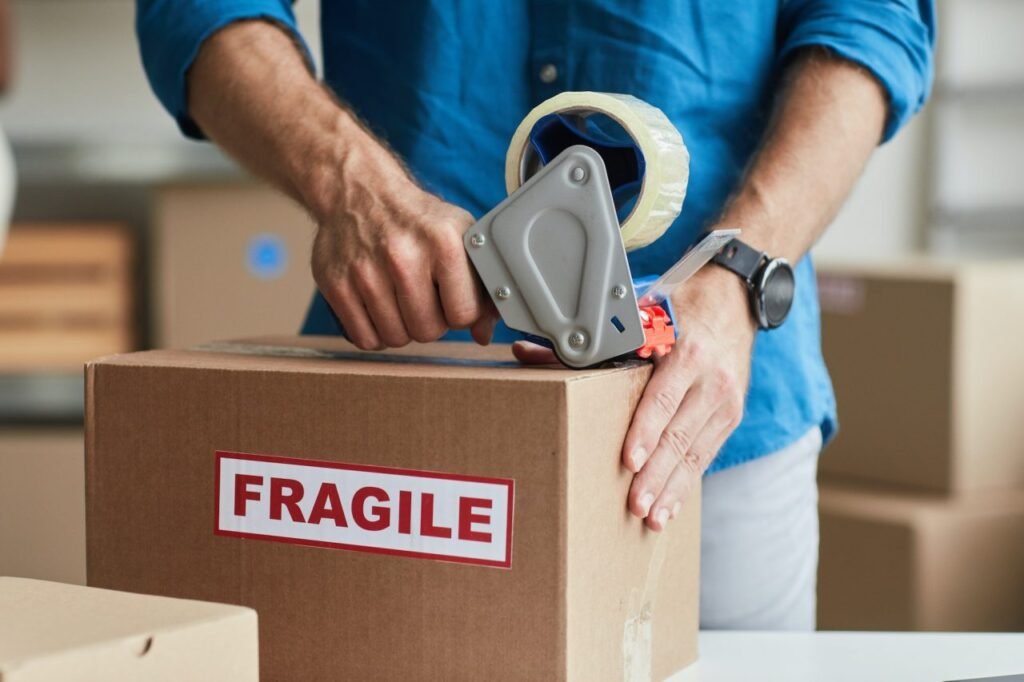
Cargo Insurance
Protect your investments with comprehensive cargo insurance, providing financial security and peace of mind against potential transit damages or losses, ensuring smooth and risk-free shipping operations.
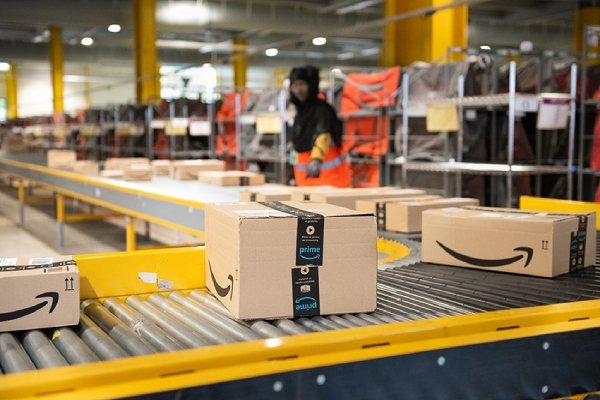
Shipping to FBA Warehouse
Facilitate seamless integration with Amazon’s network through our specialized shipping services to FBA warehouses, optimizing your fulfillment strategy, reducing handling times, and boosting your sales potential.

Custom Clearance
Expedite your international shipments with our expert custom clearance services, minimizing delays and ensuring compliance with all global trade regulations, simplifying your import/export processes.
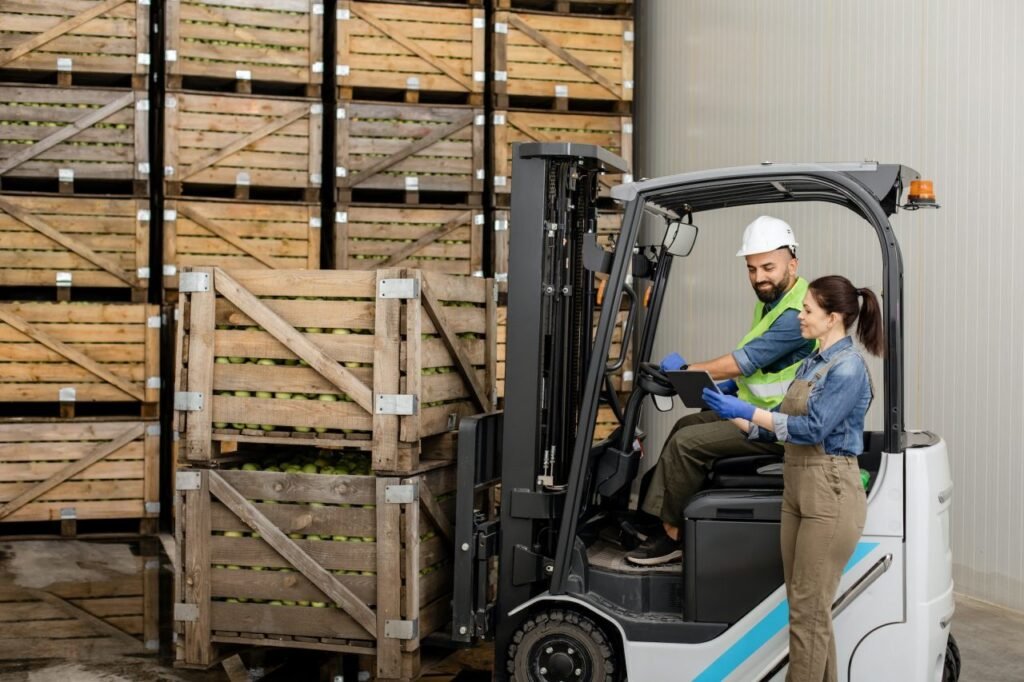
Loading Inspection
Ensure the quality and condition of your goods with our thorough loading inspections, securing shipment integrity and enhancing overall customer satisfaction by preventing potential issues during transit.

Express Shipping
Accelerate your delivery times with our express shipping options, ideal for urgent shipments that require fast and reliable service, helping you meet tight deadlines and exceed customer expectations.
Why Choose MBM ?
Experience the benefits of smooth moving
By choosing Mbmlog, you gain competitive pricing, reliable and timely deliveries, and 24/7 expert support. Benefit from our 20 years of experience, seamless customs clearance, and free warehouse storage, ensuring your logistics are efficient, cost-effective, and worry-free.
20 Years Expertise
Mbmlog offers unparalleled logistics solutions. Our extensive experience ensures efficient, reliable services tailored to meet your diverse shipping needs.
Free Warehouse
Enjoy up to 30 days of free warehouse storage with mbmlog well-organized facilities ensure your goods are stored safely.
24hx7 English Speaking Expert Supports
We provides 24hx7 English-speaking expert support, ensuring seamless, efficient communication and immediate assistance for all your logistics requirements.
Cargo Insurance
Our company offers comprehensive cargo services, protecting your shipments with tailored insurance options, ensuring safety and peace of mind during transit.
On Tracking Services
mbmforwarding's on tracking services provide real-time updates on your shipments, ensuring you always have accurate information about your cargo's status.
Professional Custom Clearance
Our professional custom clearance services guarantee smooth, efficient processing. Our expert team handles all documentation, ensuring compliance with regulations.
